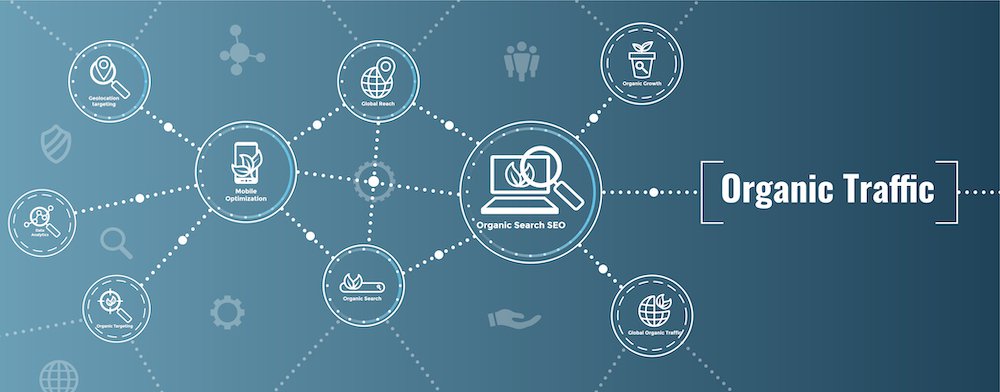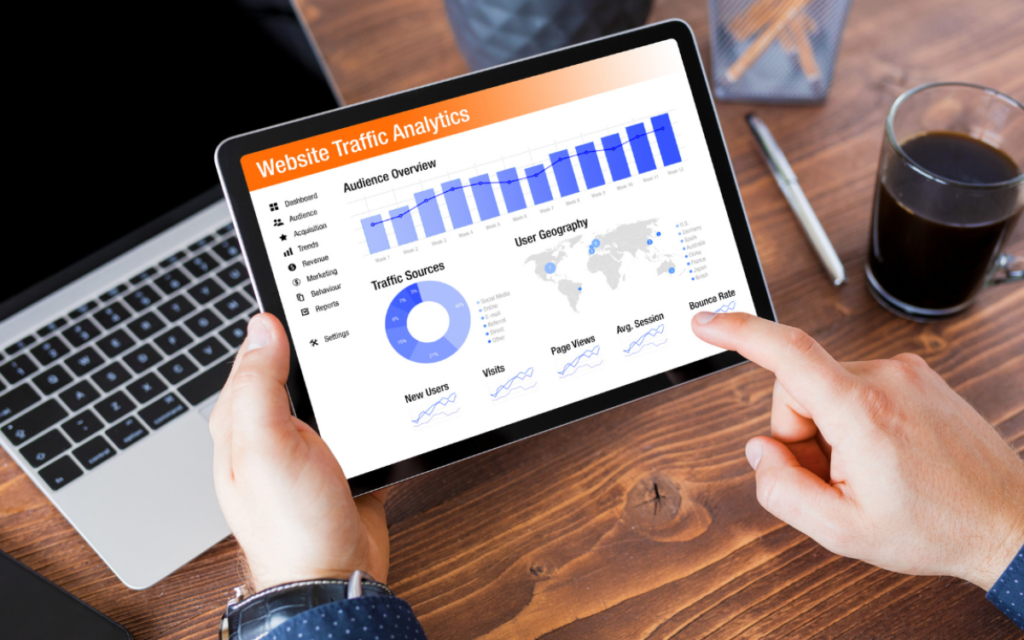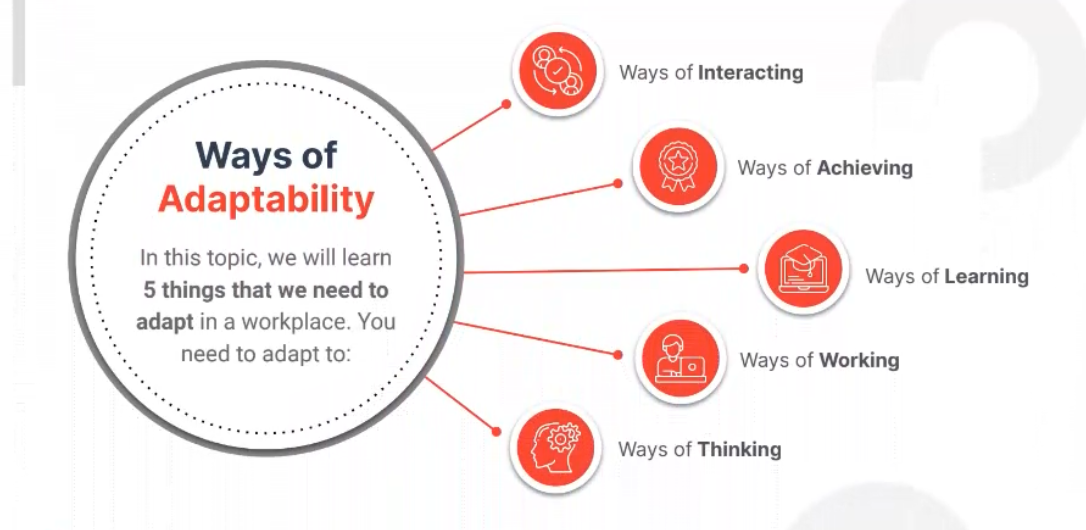Benefits of Organic Traffic: Tips to Increase Your Rankings
February 25, 2024 | by seotoolsethub.com

In today’s digital age, organic traffic has become a crucial aspect of online success for businesses and websites. Organic traffic refers to the visitors who come to your website through unpaid search engine results. Unlike paid traffic, which involves running advertisements and paying for clicks, organic traffic is driven by the relevance and quality of your website’s content.
Key Takeaways
- Organic traffic is free and sustainable, making it a valuable long-term investment for your website.
- To increase your organic traffic, focus on keyword research, high-quality content, on-page optimization, and building backlinks.
- Organic traffic is better than paid traffic because it is more trusted by users and has a higher click-through rate.
- Social media can have a significant impact on your website’s organic traffic and rankings, so it’s important to have a strong presence on these platforms.
- Measuring and analyzing your organic traffic using tools like Google Analytics can help you identify areas for improvement and track your progress over time.
Understanding Organic Traffic: What Is It and Why Is It Important?
Organic traffic is essentially the lifeblood of any successful website. When users search for information or products on search engines like Google, they are presented with a list of results that match their query. The websites that appear at the top of these search engine results pages (SERPs) are more likely to receive organic traffic.
The importance of organic traffic lies in its ability to attract highly targeted visitors who are actively searching for what you have to offer. These visitors are more likely to engage with your content, make purchases, or take desired actions on your website. Additionally, organic traffic provides long-term sustainability as it continues to drive visitors even after you stop investing in paid advertising campaigns.
The Benefits of Organic Traffic: Why It’s Better Than Paid Traffic
While paid advertising can be effective in driving immediate results and increasing visibility, there are several reasons why organic traffic is considered superior:
1) Higher Conversion Rates: Studies have shown that organic traffic tends to convert at a higher rate compared to paid traffic. This is because users trust organic search results more than ads and perceive them as more credible sources of information.
2) Long-Term Sustainability: Unlike paid advertising campaigns that require continuous investment, once you achieve high rankings on SERPs through organic efforts, you can enjoy sustained visibility without ongoing costs.
3) Cost-Effectiveness: While it may require time and effort upfront to optimize your website for organic rankings, the long-term benefits outweigh the costs associated with paid advertising campaigns.
How Organic Traffic Can Boost Your Website’s Rankings and Visibility
| Organic Traffic | The number of visitors who come to your website through search engine results pages (SERPs) without clicking on paid ads. |
| Rankings | The position of your website in the SERPs for specific keywords or phrases. |
| Visibility | The extent to which your website appears in the SERPs for relevant keywords or phrases. |
| Click-Through Rate (CTR) | The percentage of users who click on your website’s link in the SERPs. |
| Bounce Rate | The percentage of users who leave your website after viewing only one page. |
| Conversion Rate | The percentage of users who complete a desired action on your website, such as making a purchase or filling out a form. |
| Keyword Rankings | The position of your website in the SERPs for specific keywords or phrases. |
| Backlinks | The number and quality of external websites that link to your website. |
Organic traffic plays a crucial role in improving your website’s rankings and visibility on search engines. When search engines like Google crawl and index websites, they take into account various factors to determine their relevance and quality. These factors include the number of backlinks pointing to your website, the relevance of your content to user queries, and the overall user experience on your site.
By attracting organic traffic through high-quality content, optimized web pages, and effective keyword targeting, you increase the chances of search engines recognizing your website as valuable. This recognition leads to higher rankings on SERPs, which in turn drives more organic traffic.

The Importance of Keyword Research for Organic Traffic
Keyword research is a fundamental aspect of attracting organic traffic. It involves identifying the specific words or phrases that users are searching for when looking for information related to your industry or niche.
Effective keyword research allows you to understand what topics are popular among users and tailor your content accordingly. By incorporating these keywords naturally into your website’s content, meta tags, headings, and URLs, you increase its visibility in search engine results.
To conduct effective keyword research:
1) Use keyword research tools: Tools like Google Keyword Planner or SEMrush can help you identify relevant keywords with high search volumes.
2) Analyze competitor keywords: Study what keywords competitors are targeting successfully and consider incorporating them into your strategy.
3) Focus on long-tail keywords: Long-tail keywords are longer phrases that have lower competition but higher conversion rates as they target more specific user intent.
Creating High-Quality Content to Attract Organic Traffic
High-quality content is essential for attracting organic traffic as it serves two purposes: appealing to readers while also optimizing it for search engines’ algorithms.
To create high-quality content:
1) Understand audience needs: Research what kind of information or solutions users are seeking within your industry or niche.
2) Provide value: Create content that answers users’ questions, solves their problems, or provides valuable insights.
3) Optimize for search engines: Incorporate relevant keywords naturally into your content, headings, and meta tags without compromising readability.
4) Use multimedia elements: Enhance your content with images, videos, infographics, or interactive elements to engage readers and improve user experience.
The Role of On-Page Optimization in Increasing Organic Traffic
On-page optimization refers to the process of optimizing individual web pages to improve their visibility on search engine results. It involves various factors such as keyword usage, meta tags optimization, URL structure optimization, internal linking strategies, and mobile-friendliness.
To optimize your website’s pages for organic traffic:
1) Conduct a thorough SEO audit: Identify areas where improvements can be made in terms of keyword usage and on-page elements like meta tags and headings.
2) Optimize page titles and meta descriptions: Craft compelling titles that include relevant keywords while accurately describing the page’s content. Meta descriptions should also be enticing to encourage click-throughs from search results.
3) Improve URL structure: Ensure that URLs are concise yet descriptive with relevant keywords included when appropriate.
4) Enhance user experience: Make sure your website is easy to navigate with clear calls to action. Optimize loading speed by compressing images and minimizing code bloat.

Building Backlinks to Improve Your Website’s Organic Traffic
Backlinks are links from other websites that point back to yours. They play a crucial role in improving organic traffic as they act as endorsements or votes of confidence for your website’s credibility and relevance in the eyes of search engines.
To build high-quality backlinks:
1) Create valuable content worth linking to: Focus on producing informative articles, guides, case studies, or research papers that others would find useful enough to reference or share with their audience.
2) Guest blogging opportunities: Reach out to authoritative websites in your industry and offer to write guest posts that include a link back to your website.
3) Engage in influencer marketing: Collaborate with influencers or thought leaders in your niche who can promote your content and link back to your website.
4) Monitor and disavow toxic backlinks: Regularly monitor the quality of backlinks pointing to your site using tools like Google Search Console. Disavow any toxic or spammy links that could harm your organic rankings.
The Impact of Social Media on Organic Traffic and Rankings
Social media platforms have become powerful tools for increasing organic traffic and improving website rankings. When you share valuable content on social media, it increases the chances of it being shared by others, leading to more exposure and potential backlinks.
To leverage social media for organic traffic:
1) Share engaging content: Create visually appealing posts with compelling captions that encourage users to click through to your website.
2) Encourage social sharing: Include social sharing buttons on blog posts or web pages, making it easy for readers to share them with their networks.
3) Engage with followers: Respond promptly to comments, messages, or mentions on social media platforms. Building relationships with followers can lead to increased engagement and loyalty.
4) Collaborate with influencers: Partnering with influencers who have a large following can help amplify the reach of your content across various social media channels.
Measuring and Analyzing Your Organic Traffic: Tools and Techniques
To measure the effectiveness of your organic traffic efforts, it’s crucial to utilize various tools and techniques for tracking key metrics:
1) Google Analytics: This free tool provides comprehensive insights into user behavior on your website, including metrics such as total sessions, bounce rate, average session duration, conversion rates, top-performing pages, etc.
2) Search Console (formerly Webmaster Tools): This tool helps you monitor how search engines perceive your website by providing data on organic search impressions, click-through rates, and average position on SERPs.
3) Heatmap tools: Tools like Hotjar or Crazy Egg allow you to visualize user behavior by tracking mouse movements, clicks, and scrolling patterns. This data can help identify areas of improvement for better user experience.
4) A/B testing: Conducting A/B tests allows you to compare different versions of web pages or elements to determine which ones perform better in terms of organic traffic and conversions.
Common Mistakes to Avoid When Trying to Increase Organic Traffic
While increasing organic traffic is a goal for many website owners, there are common mistakes that can hinder growth:
1) Neglecting keyword research: Failing to conduct thorough keyword research can result in targeting the wrong keywords or missing out on valuable opportunities.
2) Over-optimizing content: Stuffing keywords unnaturally into your content can harm readability and make it appear spammy in the eyes of search engines.
3) Ignoring technical SEO issues: Technical issues like slow loading speed, broken links, or poor mobile optimization can negatively impact your website’s rankings and user experience.
4) Neglecting social media presence: Social media platforms provide an opportunity for increased visibility and engagement. Ignoring them means missing out on potential organic traffic sources.
Final Thoughts: Tips for Sustaining Organic Traffic and Rankings Over Time
To sustain organic traffic over the long term:
1) Continuously produce high-quality content that addresses users’ needs.
2) Stay up-to-date with SEO trends and algorithm changes.
3) Regularly monitor your website’s performance using analytics tools.
4) Adapt your strategy based on data-driven insights.
By implementing these tips consistently, you’ll be able to sustain organic traffic growth while maintaining high rankings on search engine results pages. Remember that building organic traffic takes time but offers long-term benefits that paid advertising cannot match.
RELATED POSTS
View all


